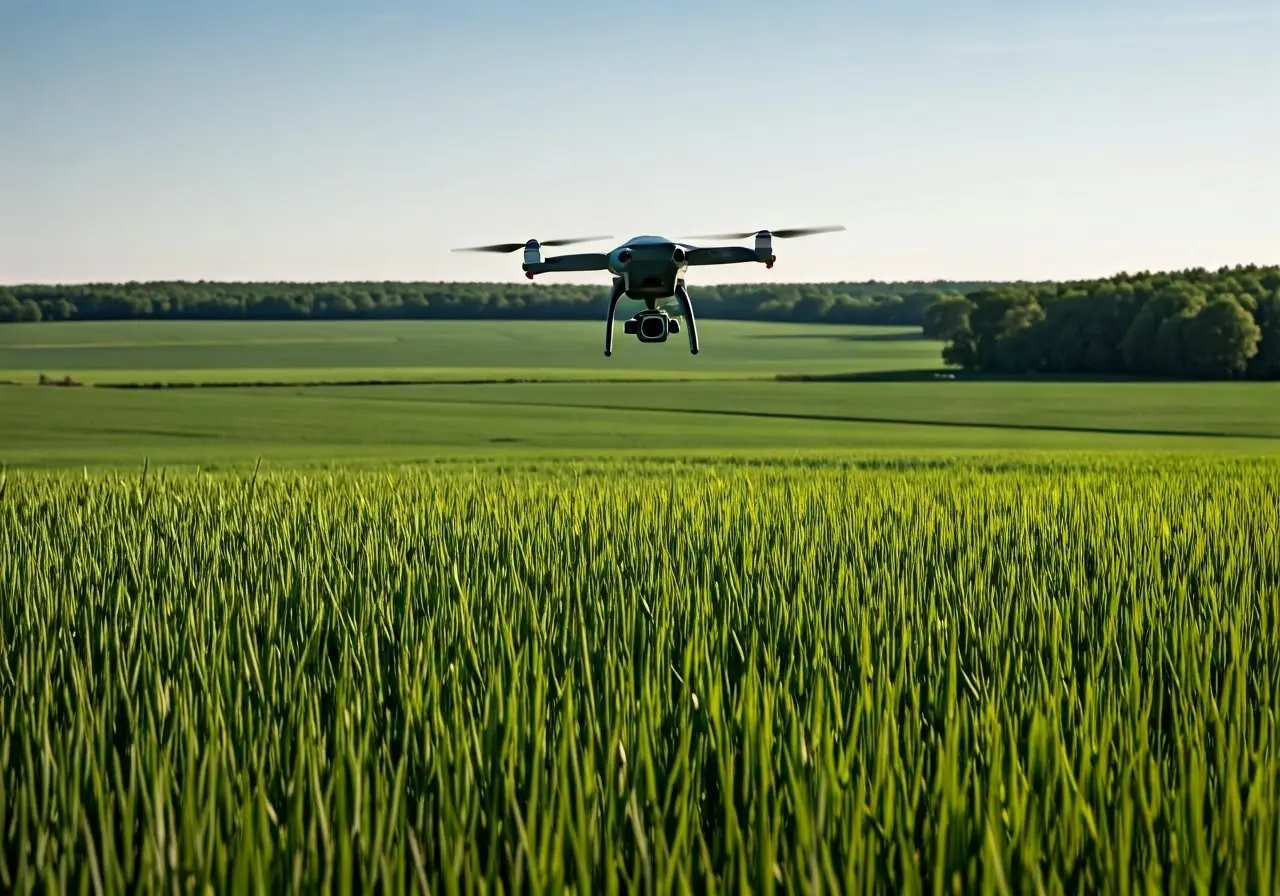Agriculture has come a long way from its traditional roots. Today, with the help of cutting-edge technology, farmers are experiencing a new era of precision and efficiency. Among the most transformative innovations is the use of agritech drones, which are reshaping how we approach food production. In this blog, we’ll explore how these high-tech tools are revolutionizing the agriculture industry.
Understanding Agritech Drones
To appreciate the impact of agritech drones, it’s essential to understand what they are. These drones are unmanned aerial vehicles equipped with cameras and sensors designed specifically for agricultural purposes. They offer farmers a bird’s-eye view of their fields, providing valuable insights into crop health, soil conditions, and overall farm operations. Moreover, the versatility of drones allows them to be customized for various agricultural tasks, such as mapping fields, spraying crops, and assessing ecological health, thereby significantly enhancing farm management.
Interestingly, the rise of these drones in agriculture is not just about increased productivity but also about sustainability. By reducing the need for heavy machinery and limiting the overuse of pesticides, these drones significantly lower the environmental impact of farming. This shift paves the way for a more sustainable farming approach, which is increasingly important as global food demands rise and the effects of climate change become more pronounced. Drones make it easier to practice precision agriculture, which aligns perfectly with sustainable farming goals.
Precision Farming: A New Era of Agriculture
Precision farming is all about using technology to ensure crops and soil receive exactly what they need for optimum health and productivity. Agritech drones play a crucial role in this by enabling precise monitoring and data collection. This allows farmers to apply water, fertilizers, and pesticides only where and when they are needed, reducing waste and improving sustainability. Consequently, farmers can achieve higher yields with fewer resources, a critical advantage for tackling challenges like food security and environmental preservation.
Further, the integration of drones with GPS and machine learning technologies revolutionizes farming. By analyzing data captured by drones, farmers can gain insights that inform better decision-making processes. These insights include understanding soil health, predicting weather patterns, and optimizing planting schedules. As a result, farmers are better equipped to face uncertainties and manage resources more effectively, all while minimizing their ecological footprint.
Enhancing Crop Monitoring and Management
Drones equipped with advanced cameras can capture multispectral images that reveal information invisible to the naked eye. This capability allows farmers to monitor crop health in real-time and detect issues, such as pest infestations or diseases, early on. As a result, they can take timely actions to mitigate potential losses, leading to healthier yields. These drones help to identify crop stress and other issues faster than traditional methods, providing a proactive approach to crop management.
In addition to detecting problems early, drones assist in ongoing crop management by providing consistent updates on crop growth stages. This ability to monitor the full lifecycle of crops enables farmers to make targeted interventions at crucial times, enhancing the overall efficiency of farm operations. Such granular monitoring was previously impractical with traditional methods, making drones a game changer for modern agriculture.
Beyond immediate monitoring advantages, drones also help create detailed maps and models of farm fields. This geospatial data, when analyzed, offers insights into variable soil properties, guiding farmers in their planting strategies. By maximizing the potential of every acre, farmers can improve not only productivity but also economic profitability, an increasingly essential factor in contemporary agriculture.
Boosting Efficiency and Reducing Costs
One of the most significant advantages of using agritech drones is the potential for increased efficiency. By automating frequent tasks, such as field surveys or crop spraying, drones help save time and labor costs. Moreover, the precision offered by drones optimizes the deployment of resources, leading to cost savings on inputs like water and fertilizers. This technology also reduces fuel-related carbon emissions by minimizing the need for ground equipment, aligning with the goals of both sustainable and efficient agriculture.
With drones, farmers can cover large areas quickly, providing rapid feedback that supports timely decision-making. This level of efficiency is particularly beneficial during critical times such as planting and harvesting seasons, where every moment counts. By maximizing the speed and accuracy of field operations, drones effectively reduce overhead costs while also increasing the farmer’s return on investment.
Overcoming Challenges in Adopting Drone Technology
Despite their benefits, adopting drone technology in agriculture isn’t without challenges. Farmers may face obstacles such as regulatory hurdles, initial investment costs, and the need for technical know-how. However, as technology becomes more accessible and policies more accommodating, these challenges are gradually being addressed. Various programs and subsidies are also emerging to support farmers in transitioning to this new wave of agricultural technology.
The development of user-friendly drone software has also facilitated greater adoption. Meanwhile, manufacturers continue to innovate, creating drones that are more affordable and easier to maintain, thus lowering the barrier to entry. As the drone industry continuously evolves, the potential for even wider adoption in agriculture seems more promising than ever. Support from agricultural businesses and tech companies plays a pivotal role in this transformation, indicating a collaborative move towards more innovative farming solutions.
The Future of Farming with Technology
Agritech drones are more than just a technological trend; they represent a fundamental shift in how we approach farming. By offering precision, efficiency, and scalability, they empower farmers to meet the growing demands for food sustainably. As technology continues to advance, the role of drones in agriculture is set to expand, promising a future where farming is smarter, greener, and more efficient. For more information on creating sustainable agriculture practices, visit our homepage.



